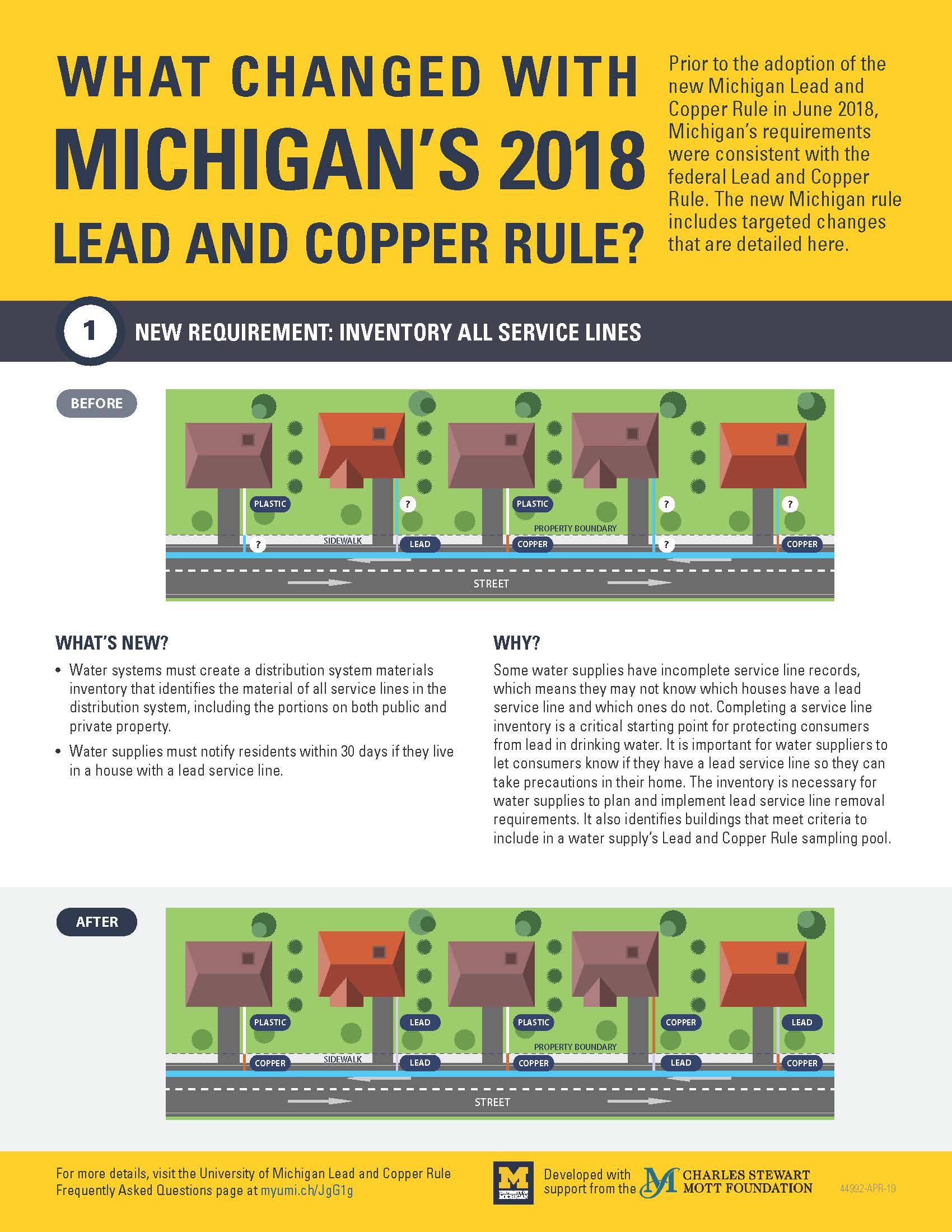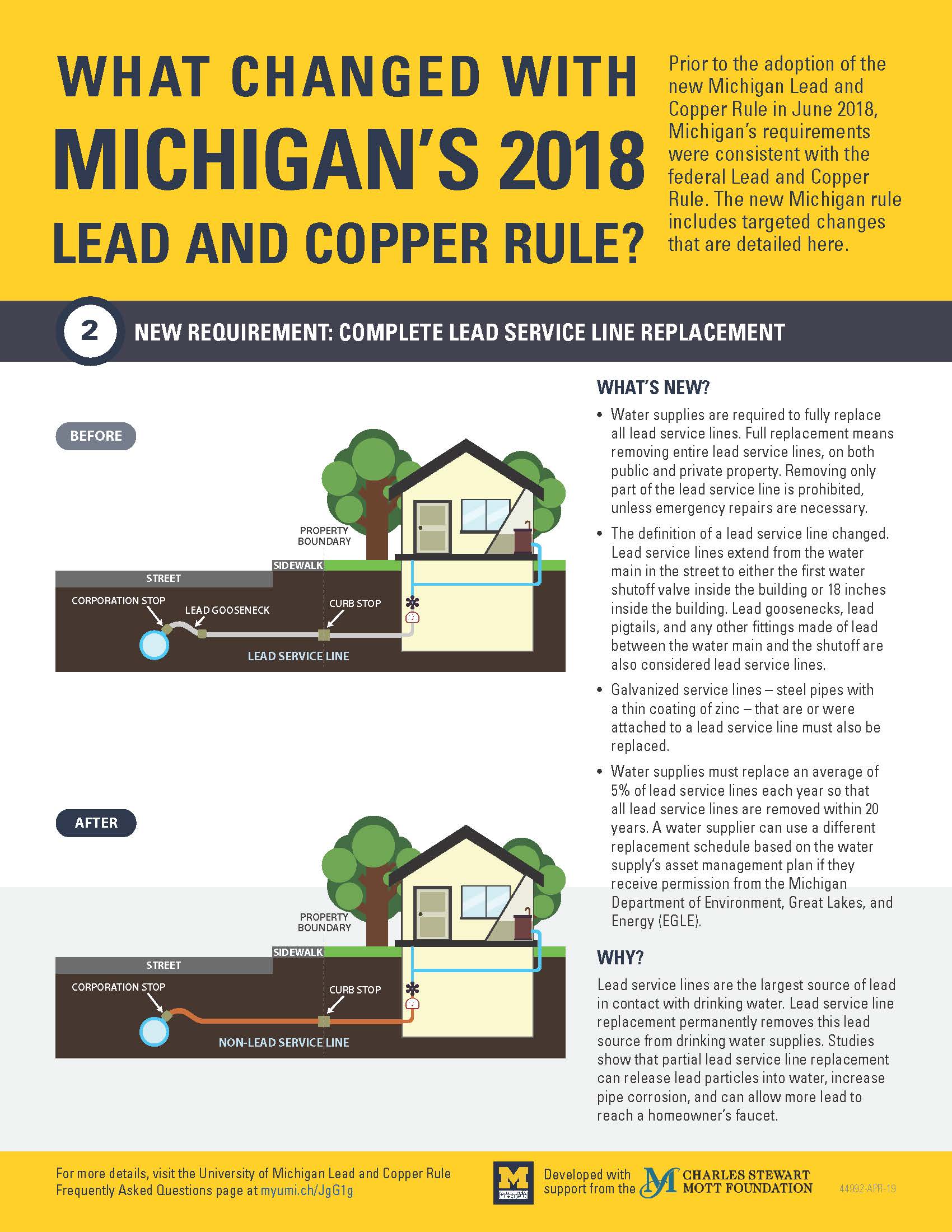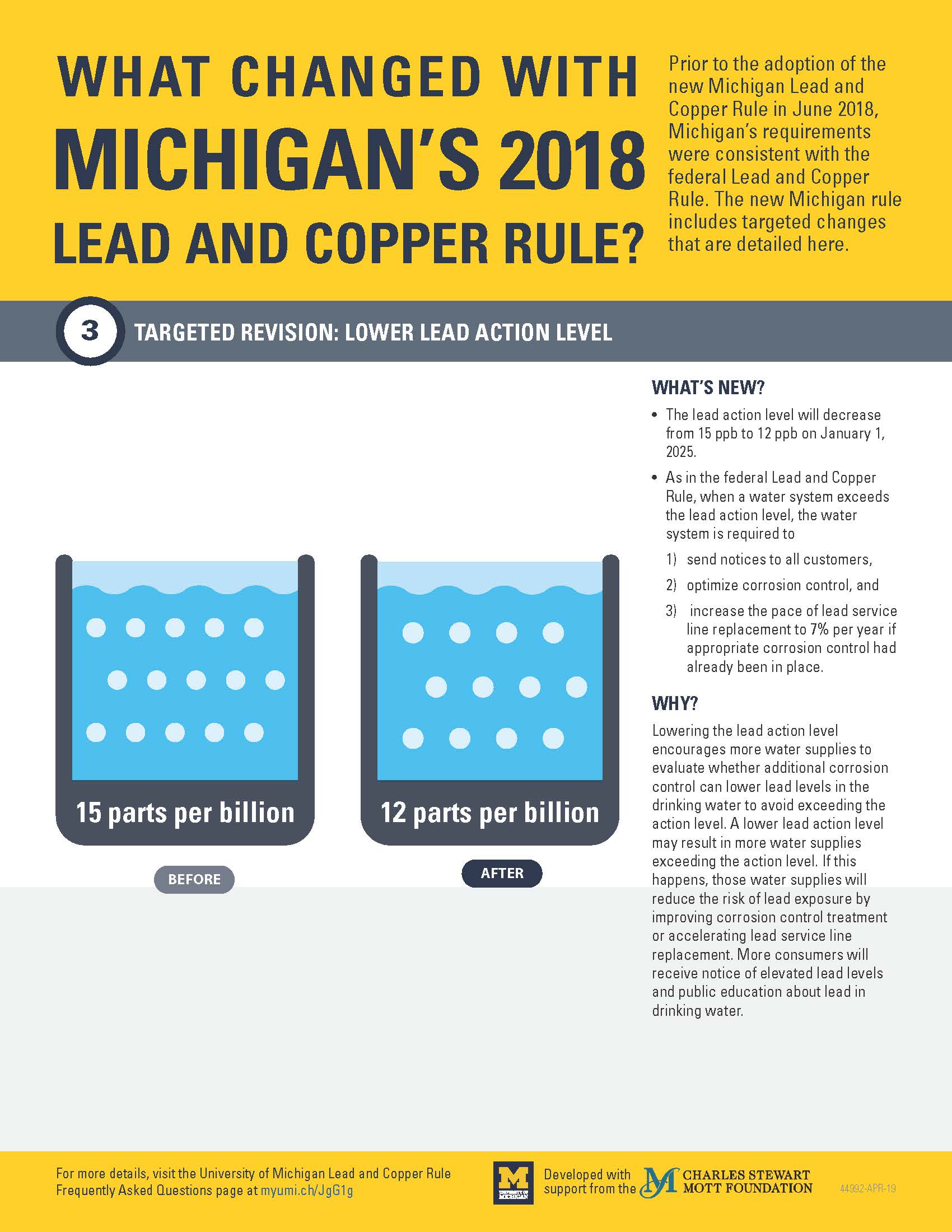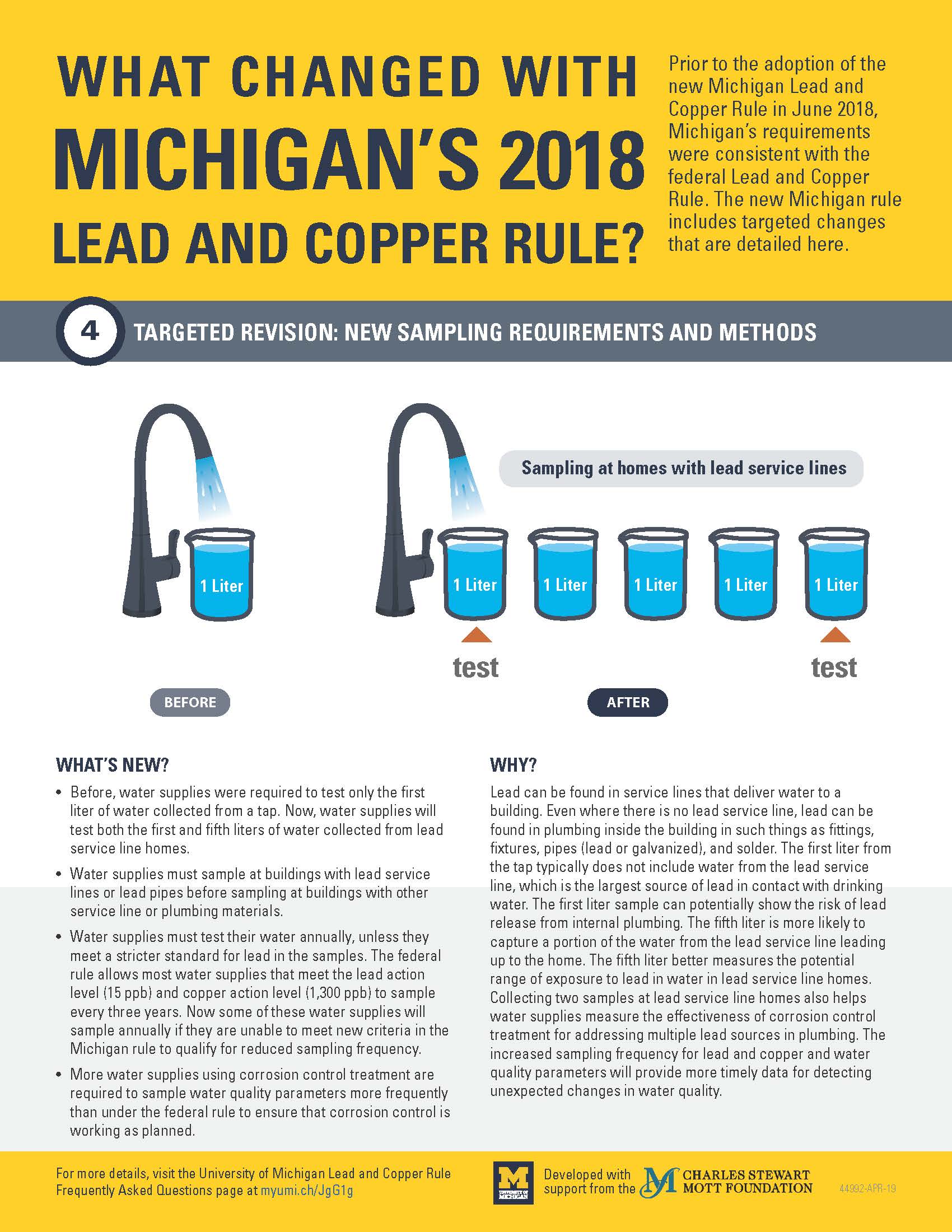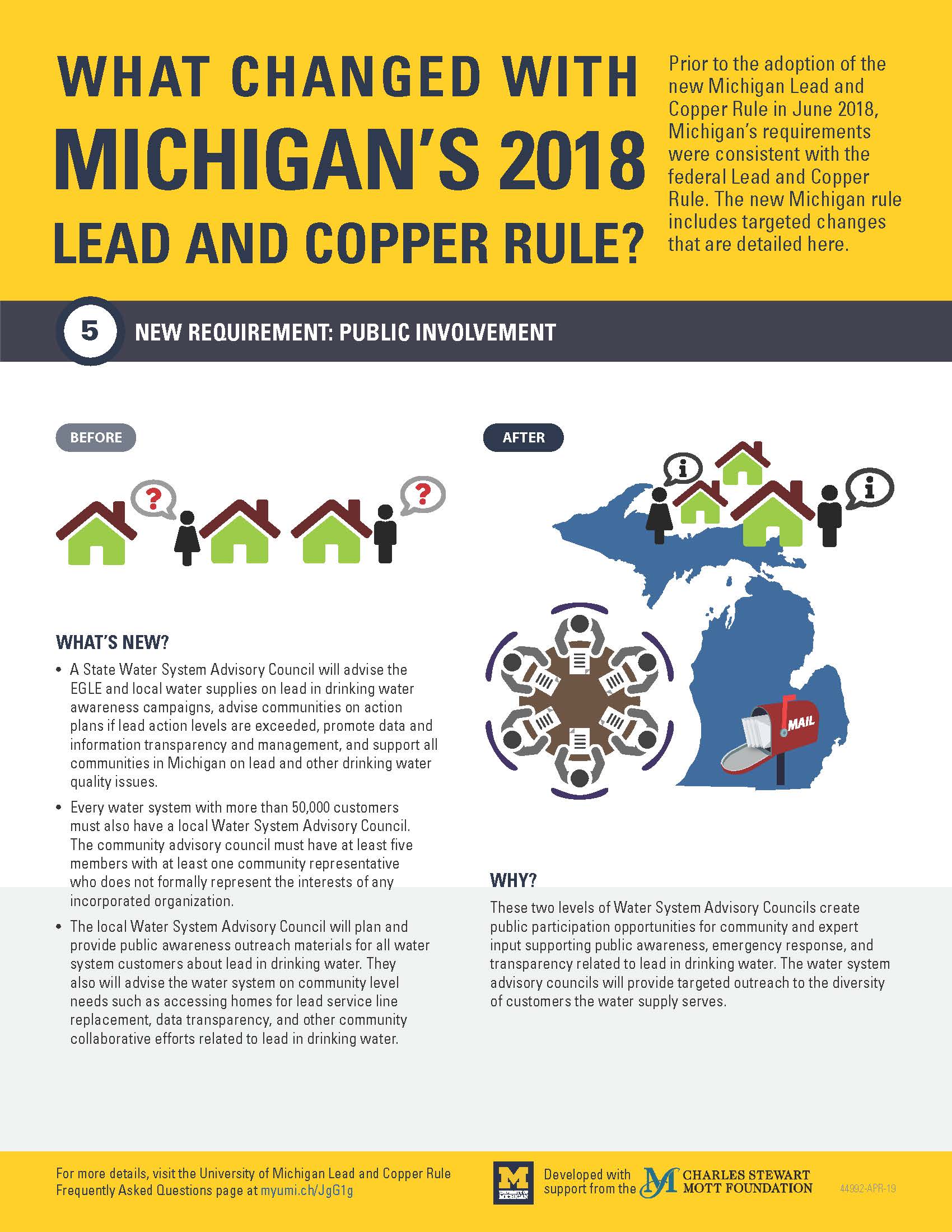To better protect public health, the State of Michigan recently adopted a series of changes to the Lead and Copper Rule—part of the Michigan Safe Water Drinking Act—creating the nation’s strictest regulations for lead in drinking water. The Michigan Department of Health and Human Services (MDHHS) and Department of Environment, Great Lakes, and Energy (EGLE) will work concurrently to implement new water sampling rules while increasing communication to Michigan residents about how and why these testing changes are occurring to their drinking water. Under Governor Gretchen Whitmer’s leadership, state agencies are dedicating resources to communities where higher lead levels are found, including offering water filters for vulnerable populations; investigating lead sources in homes; and increasing support to local public health agencies.
The testing changes now require that lead sampling must be taken from both the first liter and fifth liter water draw. By testing that fifth liter of water, it shows lead results that might be farther upstream in the water supply that is coming into homes.
Changes to the Michigan Safe Drinking Water Act were approved in 2018. The rule now requires:
- The removal of all lead service lines in Michigan. Water supplies are required to replace an average of 5 percent of their lead services line every year for the next 20 years unless an alternative schedule is approved by EGLE.
- Communities locate and prioritize lead service lines for removal.
- The Action Level for lead in drinking water be lowered from the current level of 15 parts per billion (ppb) to 12 ppb on January 1, 2025.
- The banning of partial lead service line replacements.
- Complete service line material inventories be submitted to EGLE by January 1, 2025.
The State will work closely with local water authorities to rapidly respond to any test results showing high lead levels, including enforcing steps to lower lead levels that are required by State regulation. The Governor has secured supplemental funding that will further bolster response efforts in communities where high lead levels are found by increasing support for local public health agencies, educating families, offering water filters to vulnerable populations, and investigating homes with high lead test results. These steps would help protect families while changes to improve water quality are made.
In an effort to increase transparency and communication, EGLE and MDHHS have launched a new website, www.michigan.gov/mileadsafe, which provide lead and copper data results for communities and up-to-date information on how Michiganders can protect themselves from lead exposure.
To allow for further education and conversation surrounding these changes to the Michigan Safe Drinking Water, EGLE and MDHHS will be hosting three virtual town halls on July 9, 10, and 11.
Michiganders can take part in these virtual townhalls by going to the www.michigan.gov/mileadsafe website on 6pm on July 9, 10, and 11th.
Links to additional information:
Michigan’s Revised Lead and Copper Rule FAQ: http://graham.umich.edu/project/revised-lead-and-copper-rule/faq
MI Lead Safe page: https://www.michigan.gov/mileadsafe/
Search for NSF Certified Drinking Water Filters: http://info.nsf.org/Certified/DWTU/
Below is an infographic from the University of Michigan on What Changed with Michigan’s 2018 Lead and Copper Rule:

